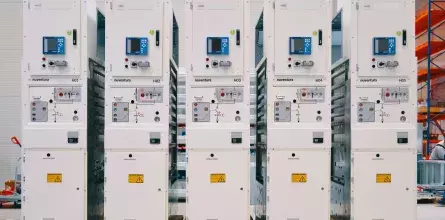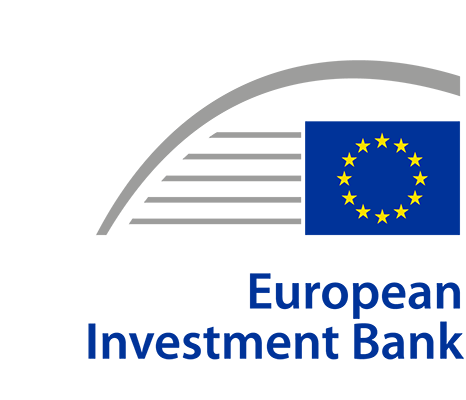Thanks to the project ‘Entrepreneurial Training Programme for migrants’, funded by the Asylum, Migration and Integration Fund (AMIF) under the Partnerships and Financing for Migrant Inclusion (PAFMI) action, and implemented by Qredits, a Dutch microfinance institution (MFI), Jeffrey Msamala, a 34-year-old man originally from Zimbabwe, could build a valuable network and move forward his water sanitation company in the Netherlands.
From the unique countryside full of windmills and vast fields of tulips to cities with more bicycles than people, these are iconic features of the Netherlands. A lesser-known fact, this laid-back country is also famous for its water management expertise. “Most of the people in the water sector in Zimbabwe studied at IHE Delft Institute for Water Education, the place to pass through and maybe even become a water guru”, says Jeffrey Msamala, a 34-year-old from Zimbabwe, who couldn’t have opted for a better place to pursue his Master’s degree in water and sanitation after being awarded an Orange Knowledge Programme scholarship funded by the Dutch government.

“Qredits has offered me precious knowledge on various business aspects including risk management in addition to the invaluable mentorship of my coach”, Jeffrey Msamala, Founder of EUAfrik.

A new boost thanks to the PAFMI-funded project
Just like in other EU countries, many third-country nationals in the Netherlands have precarious contracts and work in vulnerable sectors. On average, only around 3% of employed migrants in the Netherlands are self-employed and the support provided to them is not tailored to their needs, with limited options available.
In April 2023, Qredits partnered with the Dutch Council for Refugees and the Netherlands Chamber of Commerce (KVK) to implement a new training project on entrepreneurship specifically tailored for this vulnerable group.
Named Partnerships and Financing for Migrant Inclusion (PAFMI) and funded through Union Action 2020 by European Commission’s Directorate-General for Migration and Home Affairs (DG HOME), the scheme consists of four pilot projects selected through a competitive process in 2022-23 across four European countries (Italy, Belgium, the Netherlands and Finland) and implemented by the Council of Europe Development Bank (CEB).
“Highly educated migrants coming to the EU need to reinvent themselves and end up miserable if they stay stuck in low-paying manufacturing jobs. We want to help guide these people towards a new rewarding existence if entrepreneurship is a better option for them”, Evelyne Oprel, International Relations Manager at Qredits.
Only ten months after its official launch, eight municipalities have started working on the project and 56 participants are taking part in four programmes. Another 30 are expected to start in two more programmes this year. Qredits’ target is to have 245 participants finish the programme and around 20% of them to apply for a microloan.
With a budget of more than EUR 650 000, the Qredits Entrepreneurial Training Programme for Migrants also aims to help municipalities by generating employment and public savings. It is expected that this economic impact will encourage municipalities or host organisations to support repeat cycles or the scaling up of such training programmes.

Jeffrey Msamala taking part to the entrepreneurship programme.
“We are thrilled to have been a recipient of the PAFMI grant. Before COVID-19, Qredits was already organising training programmes for migrants, but the language of the material was too difficult. The grant allowed us to redevelop our previous training programme for migrants (lesson material & e-learning) which otherwise would have been too costly to create and implement alongside our regular activities. This programme is now more practical with a more accessible language level. In addition to special training courses for coaches involved in the project organised by the Dutch Council for Refugees, the grant has allowed us to hire a coordinator to help promote the programme and encourage municipalities to use it”,
says Evelyne Oprel.
Positioning EUAfrik for growth
The recent enrolment of Jeffrey Msamala in the entrepreneurship programme has immediately bore fruits: it has facilitated networking with prominent Dutch actors such as Aqua for All, that focuses on investing in water and sanitation, as well as scaling up innovations in rural and urban areas in West and East Africa, the Horn of Africa and South Asia.
Jeffrey is also exploring strategic partnerships and potential synergies with Practica, an NGO providing affordable technologies for water supply, irrigation and renewable energy in low-and middle-income countries as well as WASTE, an international development organisation based in the Netherlands catalysing sustainable solutions to urban challenges.
Additionally, EUAfrik is being considered as the lead partner for a consortium with three Kenyan water organisations on a project set to run until 2027 named 'Partners for Water,' funded by the Dutch Government that focuses on innovations for water safety and security.
“Qredits is playing a significant role for EUAfrik by expanding my business network and social circle. They connected me to fellow migrants with diverse and interesting backgrounds, Dutch organisations, businesses and entrepreneurship coaches, who, in addition to mentoring, help bridge the gap to the Dutch community, market and other organisations. Their support has already led to some business connections and platforms for me”,
the entrepreneur says with enthusiasm while he adds:
“Qredits coaches provide a well-rounded and comprehensive approach that equips entrepreneurs with information, tools, resources, and networks, enabling them to effectively manage businesses in the Netherlands. I personally am in favour of their multi-faceted approach to offer training, coaching, and micro-financing services. If this isn’t a good deal, I don't know what is. Additionally, the programme assists in enhancing Dutch language skills since it is conducted in Dutch”.

Evelyne Oprel, International Relations Manager at Qredits
A clear focus on business development services (BDS)
During the selection process, Qredits “looks first at the person behind the application”. They meet with applicants in person and see if they have a good business idea but also drive and support around them to succeed. Evelyne Oprel also stresses that Qredits’ focus is on business development services (BDS). “Through this programme we haven’t issued any microloan yet. This is a preparatory training programme so that third-country nationals can develop a good plan and are better informed on how to start a business in the Netherlands.
Another outcome of the training could be that they realise starting a business in the Netherlands may not be the right path for them”, she says.
“Informing and training TCN applicants is our priority; if they apply for a microloan that is great, but it is not our priority. In 2022, we had over 21 000 active borrowers; of which more than 3 200 were TCNs (passport from a non-EU country) according to our data”.
Big ambitions
In the short term, Jeffrey sees his ‘green business’ as a step towards realisation of one of the UN Sustainable Development Goals: clean water and sanitation for all. For the future, he has big ambitions: “In the long run we hope to explore setting up a technology demonstration centre in either Zimbabwe or Kenya that will serve to showcase and demonstrate popular and upcoming water and sanitation technologies, as well adapt relevant technologies for the African or Global South context” he says. He may also explore a microloan with Qredits since he is considering the option of forming partnerships with manufacturing companies to upgrade or customise an electric cargo motorbike specifically for solid waste collection which are, according to him, robust and well-suited for the African context in comparison to electric cargo bikes.
Moving closer to this goal, EUAfrik is expanding its network with various organisations: it is a member of the Global Youth Movement for Water, Rural Water Supply Network and partners with a Dutch company that manufactures and supplies sewer and toilet servicing equipment called ROM bv. Additionally, EUAfrik collaborates with Palintest – Water Analysis Technologies, a British manufacturer and supplier of water testing kits and equipment and Radkutsche, a German electric cargo bike manufacturer.

“I personally am in favour of Qredits’ multi-faceted approach to offer training, coaching, and micro-financing services. If this isn’t a good deal, I don't know what is”. Jeffrey Msamala, Founder of EUAfrik.
The case of highly educated migrants
As in many other European countries, among today’s newly arrived migrants, there are many highly educated individuals that had to leave their own business or important careers behind. The underutilisation of migrants’ human capital, sometimes referred to as ‘brain waste’, is not only detrimental to migrants themselves but also for the host countries.
There are several small organisations in the Netherlands working with this target group. One of them works with highly educated individuals providing business trainings in English and organising pitching events in front of investors. There are also some local initiatives that train and mentor individuals. These individuals can come to Qredits and apply for a microfinance loan and these smaller initiatives also refer their clients to Qredits if they need start-up capital.
The ‘Entrepreneurial Training Programme for migrants’ project in the Netherlands, funded by AMIF through ‘Partnerships and Financing for Migrant Inclusion (PAFMI)’
The Qredits Entrepreneurial Training for migrants’ initiative targets migrants who have a business idea or entrepreneurial experience in their country of origin. A total of 18 training programmes are being made available in at least 10 municipalities throughout the Netherlands, reaching some 270 migrants in need of entrepreneurial support. Among these beneficiaries, at least 25% of women.
The different modules focus on developing their entrepreneurial skills, a business plan, defining customer groups and markets, financial skills and practical aspects of starting a business in the country. Once migrant entrepreneurs are ready to start their businesses, they will be able to apply for microloans from Qredits. If their application is approved, they can receive a loan of up to EUR 50 000 made possible through funding from a CEB loan to Qredits.





